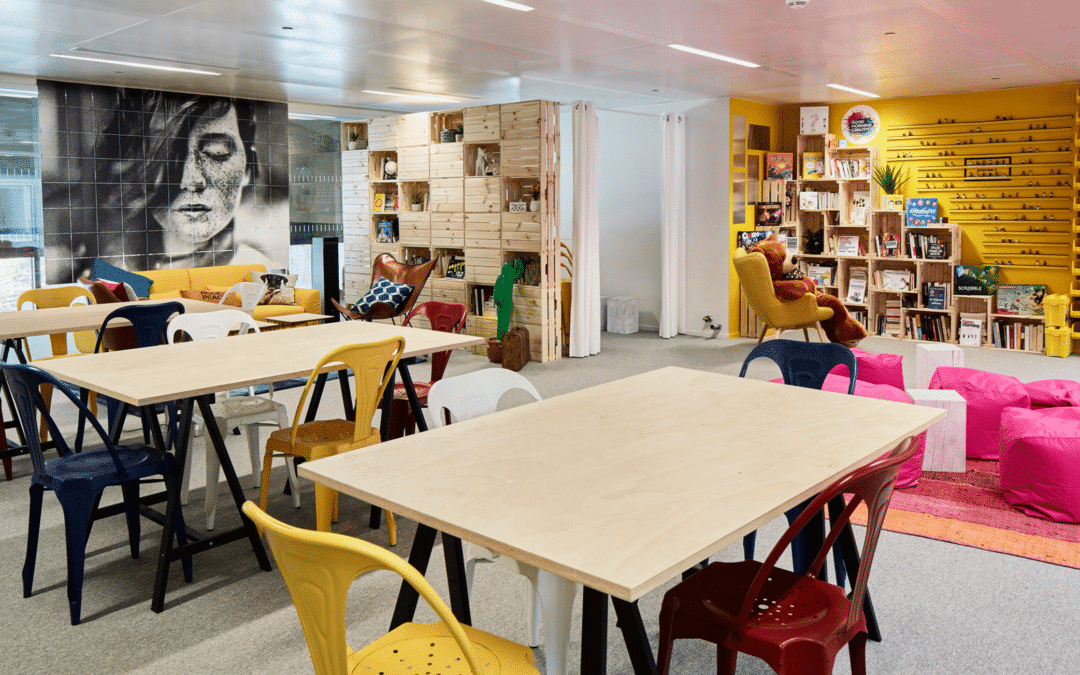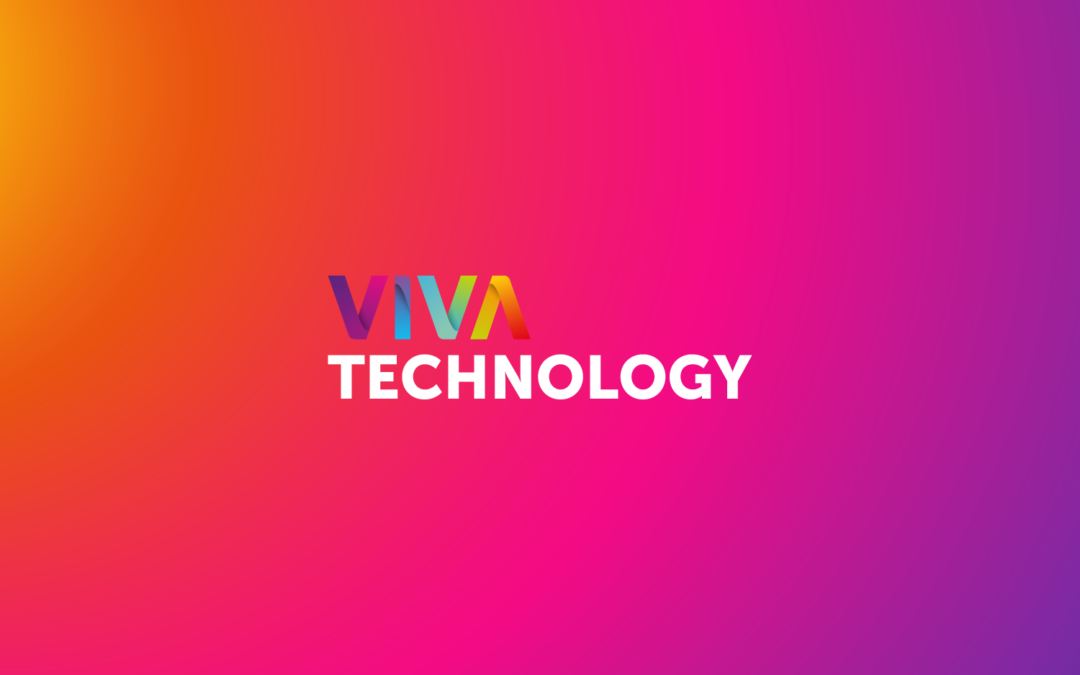Recruitment is a crucial issue for companies seeking to find the best talent. But with an increasingly competitive job market and a shrinking workforce, it has become difficult to attract and retain candidates.
For several years, the unemployment rate has been decreasing, reversing the balance of power between candidate and recruiter. The candidates’ expectations have changed, but so have the needs of companies, particularly in a context of shrinking workforces and rising retirement ages.
In response to these changes, new recruitment methods are being developed with a dual objective: to attract and retain candidates and to anticipate changes in professions and the associated skills requirements.
We invite you to discover 3digital recruitment innovations that meet these challenges.
HR Innovation No. 1: Enhancing the candidate experience
Like the trademark, the employer brand considers the candidate as a customer. It shares with its model the objectives of attracting and retaining customers. Social rating is increasingly integrating all types of decision schema.
In this context, the opinions of ex-candidates and employees about companies are becoming increasingly important in the decision to buy. potential candidates from apply for job offers. This influence sometimes even extends to the decision to consume the products or services offered by the companies.
According to a survey conducted by Hellowork By 2022, 90% of applicants will have found out more about the company before applying, including 51% via social networks and 45% via online employee reviews.
Faced with the proliferation of evaluation platforms, companies are busy improve the candidate experience.
According to a CareerBuilder survey, 67% of candidates expect to receive a call from the recruiter. But calling back the candidates concerned can quickly prove to be time-consuming for recruiters if the volume is high. A number of tools are available to solve this problem, such as the YAGGO.
90% of applicants find out about the company before applying
67% of candidates expect a call from the recruiter
This publisher offers a solution for managing personalized responses to unsuccessful applicants, and counts the KILOUTOU group among its customers.
For the past 7 years, KILOUTOU has been working with YAGGO as part of its “responsible recruitment” approach.
We spoke to Benoît PACCEU, HR Development Director at KILOUTOU, who explains why his company turned to this solution: “We were spending a lot of money to attract candidates, but we were responding in a very standardized way, and they ended up with a bad image. Candidates felt that their application had been under-treated. This forced us to spend even more to attract candidates”.
Today, connected to the ATS (Applicant Tracking System), YAGGO recovers rejected applications and sends them a personalized negative response, including the position, title, first and last name, as well as advice on how to improve the CV.
YAGGO can also be used to send out newsletters with job vacancies, and to pass on company news to unsuccessful candidates.
The KILOUTOU Group measures the effectiveness of this investment in 2 ways:
“We get feedback from our dedicated YAGGO consultant who tells us, firstly, that we have candidates who reflect our image: simple, friendly and open. Secondly, we receive a huge number of testimonials from candidates, such as ‘thank you for taking the time to reply’, ‘thank you for the Council’, etc. In addition, we measure the candidate experience more precisely, with an external service provider called ChooseMyCompany. YAGGO has enabled us to improve our rating. Today, we’ve gone from a score of just over 3 to just over 4 out of 5.”
Benoit PACCEU, HR Development Director.
These types of solutions, aimed at Human Resources seeking to improve their employer image, help to offer a more human and responsible candidate experience.
To anticipate the recruitment challenges of tomorrow, it is essential to develop solid adaptation strategies. In our dedicated article, you’ll find the keys to adapting as a recruiter and remain effective in a constantly changing environment.
HR Innovation #2: Soft skills are increasingly valued in recruitment
Soft skills are aptitudes, emotional and relational qualities that are specific to each individual.
They enable us to interact harmoniously with others, and are complementary to technical and academic skills, otherwise known as hard skills.
More and more companies are adopting a different way of thinking, focusing on assessing soft skills rather than technical knowledge. The idea here is to recruit individuals who can evolve and adapt in a context where 85% of the jobs of 2030 do not yet exist, according to a study published by Dell and the Institute for the Future.
To meet the needs of organizations and recruit candidates efficiently, companies such as Assessfirst and Goshaba offer solutions for assessing soft skills at the recruitment stage.
Assessfirst offers candidates the opportunity to take a personality test. Through the responses, the candidates’ profiles are analyzed to predict the behaviors, desires and activities in which they will be most likely to make a real difference.
Marlise NOTEUIL, Recruitment Manager at SQORUS explains how this solution completes her recruitment toolbox:
“ For SQORUS, soft skills are as important as hard skills. We tried the use of card games and escape games with COLLOCK. But with these means, we did not have a transcript. They serve as a basis for discussion with the candidates, helping us to confirm any doubts we may have. Assessfirst is an intuitive tool for both the recruiter and the candidate. Completion of the questionnaire is fairly quick, about 30 minutes. As a recruiter, we can define criteria that are important to us and get a comparison between the results obtained and the SQORUS expectations. “
Marlise NOTEUIL, Recruitment Manager at SQORUS.
Goshaba has also come up trumps, offering toassess soft skills through gamification.
Tired of the difficulties of comparing speech to CV and wanting to detect new talent, many companies are taking the plunge and including gaming in their recruitment process. There is a natural selection process, as some candidates, for various reasons, give up at the sight of the game. This doesn’t worry recruiters , some of whom feel that the volume of applications is certainly lower, but of better quality, not to mention the time saved in sorting CVs.
For the most willing candidates, this stage of the recruitment process is considered less intimidating than the stages of a “classic” recruitment process .
As the results are quickly available to recruiters, many customers integrate Goshaba’s service into an overall recruitment process , with other stages such as language tests and job interviews.
However, this new direction does not seem to be to everyone’s taste. According to an Opinion Way survey of 1,000 French employees carried out for Dropbox, 67% of them feel that an assessment based solely on behavioral skills is arbitrary, and 62% see soft skills as an additional pressure, or even as an obstacle to their career development for 45% of employees.
of French employees believe that an evaluation based solely on behavioral skills is arbitrary
of French employees see soft skills as an additional pressure
%
of French employees see soft skills as an obstacle to their career development
These new recruitment tools provide recruiters with richer information on candidates’ interpersonal interpersonal skills. These innovative solutions are a real advantage for companies looking for talent with sought-after soft skills. However, a balance needs to be struck between these two issues, in order to a) anticipate future needs by attracting the best the best profiles and at the same time, foster a climate of confidence among candidates and employees in the objectivity of recruitment.
HR Innovation #3: Recruiting in the Metaverse
The word “metaverse” is the contraction of the English terms “meta” (beyond) and “verse” of “universe”. This word appeared for the first time in the novel Snow Crash, (The Virtual Samurai) by Neil Stephenson in 1992.
The metaverse is a virtual environment in which individuals interact via avatars. It is thought as a “mirror” of the real world, in which one can play, shop, build one’s own universe… and also eventually work. The metavers is gradually entering the world of human resources.
The first companies toinvest in the metaverse to attract young, technical profiles, like Carrefour, which organized recruitment sessions in the metaverse with 30 students from Polytechnique and Institut Mines-Télécom business school.
Immersion in the metaverse has some advantages in theevaluation of soft skills. The use of avatars allows to break the codes, because nothing obliges the participants to be represented by a physically resembling or even plausible avatar. But these virtual interactions have their limits and do not exempt from an IRL (in real life) meeting with the individual, either remotely or physically, in order to ensure the person’s identity.
Another advantage of metavers is that they can be used to simulate situations in order toassess candidates’ skills. (hard skill or soft skills).
It also encourages remote individuals to come together in more immersive spaces, recreating the “exchange spaces” we’ve somewhat lost since the advent of the remote working.
We have written several articles on the subject of metavers, to learn more, we invite you to consult them!
- What is a metaverse?
- Metavers, what are the first controversies?
- The metaverse at the service of training
The metaverse thus enables recruiters to meet candidates in an immersive virtual environment, offering an innovative recruitment experience. It represents a new horizon for companies in search of talent, offering them new prospects for finding the profiles best suited to their needs. However, the metaverse still has a long way to go, as accessibility to this technology still seems imperfect (need for a blockchain wallet, best experience with an expensive virtual reality headset, foreign-language environment…).
Conclusion on digital recruitment innovation
Companies are investing more and more in the recruitment process, both with a view to continuous improvement of their image of the employer, than in a time relationship of recruitment versus profile quality in order to capture the right human resources.
The challenge is toimprove the candidate experience toattract and retain the right profiles the most interesting and progressive.
Profiles capable of evolving into other professions thanks to their aptitudes, behaviors… and more generally thanks to the skills they possess. soft skills.
Then the recruiters diversify their recruitment methods. They do not hesitate to integrate the game and the metaverse in all or part of their recruitment process, depending on the job or the profile sought. Indeed, it is interesting to note that the companies that have led the way have made sure to target the right populations to be impactful.
SQORUS, a Council specialized in digital transformation, is used to helping companies of all sizes and in all sectors with their HR processes, and more, thanks to its LAB, which constantly monitors the latest developments in the field. HR innovations. Contact us to discuss this directly with our experts.
Contact
A project? A request?A question?
Contact us today and find out how we can work together to make your company’s digital future a reality.
The LAB SQORUS blog
Our innovation blog provides analysis and bold ideas to address the major issues facing organizations today in HR, Finance and IT.
For more innovations, find articles on the same theme:
Customer case study – Secure connection of datacenter to the cloud
Secure data center connection to the cloud Discover how SQORUS successfully connected a datacenter to the cloud, guaranteeing optimal security and performance. A case study in hybrid infrastructure without compromise. The challengeImplementation of network...
Ebook – How to choose the ideal Finance IS in 2025
Ebook: How to choose the ideal Finance IS for 2025?Discover how Finance IS will transform finance departments in 2025, and optimize your processes to make the Finance function a true strategic partner.[dsm_image_carousel gallery_ids="46448,46449,46450,46451,46452"...
Key skills and functions for HR Reporting with FDI
Wondering how to optimize your HR Reporting process usingFDI(Fusion Data Intelligence)? This study explores the skills required and the essential functionalities offered by FDI to transform your approach to HR reporting. Our analysis is not limited to theFDI tool...

















